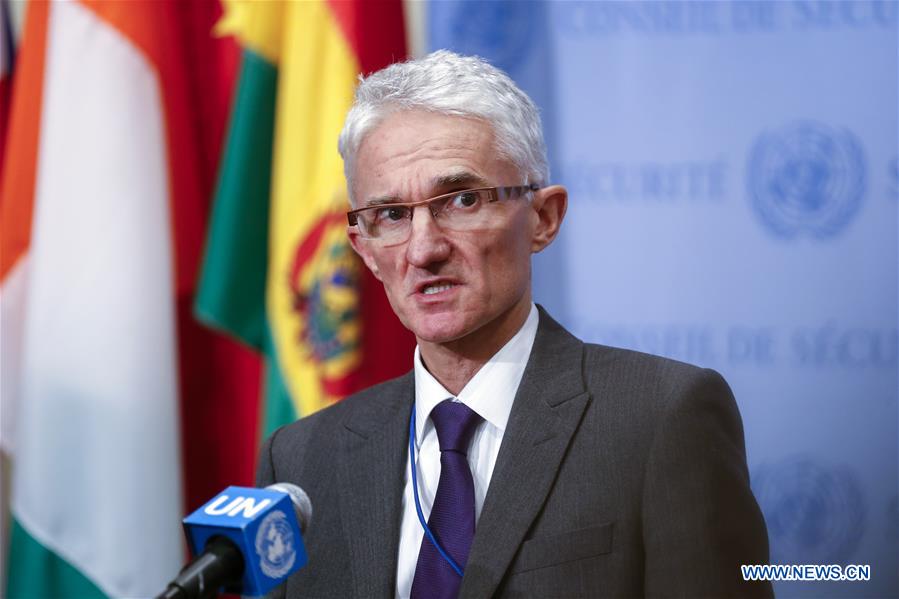 ?
?United Nations Under-Secretary-General for Humanitarian Affairs and Emergency Relief Coordinator Mark Lowcock speaks to journalists on the humanitarian situation in Yemen at the UN headquarters in New York, on Oct. 23, 2018. Mark Lowcock on Tuesday demanded a humanitarian cease-fire in Yemen to avert an imminent famine. (Xinhua/Li Muzi)
UNITED NATIONS, Oct. 23 (Xinhua) -- UN Undersecretary-General for Humanitarian Affairs Mark Lowcock on Tuesday demanded a humanitarian cease-fire in Yemen to avert an imminent famine.
Lowcock, who warned of "a clear and present danger of an imminent and great big famine engulfing Yemen," asked the UN Security Council for help with regard to the humanitarian cease-fire and other measures.
Briefing the council, he warned that Yemen, three years into civil war, will see a famine "much bigger than anything any professional in this (humanitarian) field has encountered during their working lives."
He asked for Security Council support in five areas.
First, a cessation of hostilities in and around all the infrastructure and facilities on which the aid operations and commercial importers rely.
"A humanitarian cease-fire would reflect the obligations of the parties to the conflict to uphold international humanitarian law and to do everything possible to facilitate the delivery of humanitarian assistance," he told the council.
Second, protection of the supply of food and essential goods across the country. Humanitarian and commercial imports must flow into all ports and onwards to their final destinations. This means lifting planned and existing restrictions on imports and keeping the main transport routes open and safe.
Third, a larger and faster injection of foreign exchange into the Yemeni economy through the Central Bank, along with expediting credit for traders, and payment of pensioners and civil servants.
Fourth, increased funding and support for the humanitarian operation. Given projected increases in needs, aid agencies need additional resources now to start scaling up relief efforts. Some 14 million Yemenis, nearly half of the total population, may soon need urgent food aid for survival, Lowcock told the Security Council. The UN humanitarian workers and partners are currently helping 8 million Yemenis every month.
Fifth, with so many lives at stake, the belligerents should engage fully and openly with the UN Special Envoy for Yemen Martin Griffiths to end the conflict, said Lowcock.















